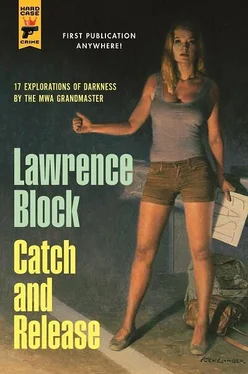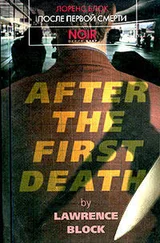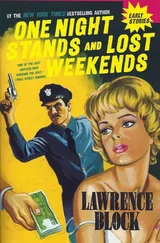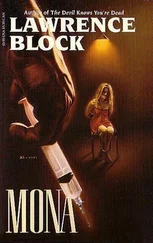He did a few more, and was making more money than he’d made as an employee, and working his own hours. But it wasn’t what he really wanted to write, and he tried a few other things, and wound up out in California, writing for film and television. Fielding referred him to a Hollywood agent, who, out of gratitude and the hope of more business, split commissions on Metzner’s sales with Byron Fielding. Thus Fielding made far more money over the years from Gerald Metzner’s screenwriting than he had ever made from his prose, and all he had to do for it was cash the checks the Hollywood agent sent him. That was, to his way of thinking, the ideal author-agent relationship, and he had warm feelings for Metzner — or what passed for warm feelings in such a man.
When Metzner had occasion to come to New York, he more often than not dropped in on his agent. He and Fielding would chat for fifteen minutes, and then he could return to Hollywood and tell himself he hadn’t entirely lost touch with the world of books and publishing. He had an agent, didn’t he? His agent was always happy to see him, wasn’t he?
And who was to say he wouldn’t someday try his hand at another novel?
Years passed, as they so often do. Business again called Gerald Metzner to New York, and he arranged to drop by Fielding’s office on a free afternoon. As usual, he waited for a few minutes in the outer office, taking a look at the sea of minions banging away at typewriters. It seemed to him that there were more of them every time he visited, more men sitting at more desks, telling even more of the hopeful hopeless that they had talent in rare abundance, and surely the next story would make the grade, but, sad to say, this story, with its poorly constructed plot, was not the one to bring their dreams to fulfillment. What a story required, you see, was a strong and sympathetic lead character confronted by a problem, and... Di dah di dah di dah.
He broke off his reverie when he was summoned to Fielding’s private office. There the agent waited, looking younger than his years, health club-toned and sunlamp-tanned, a broad white-toothed smile on his face. The two men shook hands and took seats on opposite sides of the agent’s immaculate desk.
They chatted a bit, about nothing in particular, and then Fielding fixed his eyes on Gerald. “You probably notice that there’s something different about me,” he said.
“Now that you mention it,” Metzner said, “I did notice that.” Years of pitching doubtful premises to studio heads and network execs had taught him to think on his feet — or, more accurately, on his behind. What, he wondered, was different about the man? Same military haircut, same horn-rimmed glasses. No beard, no mustache. What the hell was Fielding talking about?
“But I’ll bet you can’t quite put your finger on it.”
Well, that was a help. Maybe this would be like soap opera dialogue — you could get through it without a script, just going with the flow.
“You know,” he said, “that’s it exactly. I sense it, but I can’t quite put my finger on it.”
“That’s because it’s abstract, Gerry.”
“That would explain it.”
“But no less real.”
“No less real,” he echoed.
Fielding smiled like a shark, but then how else would he smile? “I won’t keep you in suspense,” he said. “I’ll tell you what it is. I’ve got peace of mind.”
“Peace of mind,” Metzner marveled.
“Yes, peace of mind.” The agent leaned forward. “Gerry,” he said, “ever since I opened up for business I’ve been the toughest, meanest, most miserable sonofabitch who ever lived. I’ve always wrung every nickel I could out of every deal I touched. I worked sixty, seventy hours a week, and I used the whip on the people who worked for me. And do you know why?”
Metzner shook his head.
“Because I thought I had to,” Fielding said. “I really believed I’d be screwed otherwise. I’d run out of money, I’d be out on the street, my family would go hungry. So I couldn’t let a penny get away from me. You know, until my lawyers absolutely insisted, I wouldn’t even shut down the Personal Collaboration dodge. ‘Byron, you’re out of your mind,’ they told me. ‘That’s consumer fraud, and you’re doing it through the mails. It’s a fucking federal offense and you could go to Leavenworth for it, and what the hell do you need it for? Shut it down!’ And they were right, and I knew they were right, but they had to tell me a dozen times before I did what they wanted. Because we made good money out of the PC clients, and I thought I needed every cent of it.”
“But now you have peace of mind,” Metzner prompted.
“I do, Gerry, and you could see it right away, couldn’t you? Even if you didn’t know what it was you were seeing. Peace of mind, Gerry. It’s a wonderful thing, maybe the single most wonderful thing in the world.”
Time for the violins to come in, Metzner thought. “How did it happen, Byron?”
“A funny thing,” Fielding said. “I sat down with my accountant about eight months ago, the way I always do once a year. To go over things, look at the big picture. And he told me I had more than enough money left to keep me in great shape for as long as I live. ‘You could shut down tomorrow,’ he said, ‘and you could live like a king for another fifty years, and you won’t run out of money. You’ve got all the money you could possibly need, and it’s in solid risk-free inflation-resistant investments, and I just wish every client of mine was in such good shape.’”
“That’s great,” said Metzner, who wished he himself were in such good shape, or within a thousand miles thereof.
“And a feeling came over me,” Fielding said, “and I didn’t know what the feeling was, because I had never felt anything like it before. It was a relief, but it was a permanent kind of relief, the kind that means you can stay relieved. You’re not just out of the woods for the time being. You’re all of a sudden in a place where there are no woods. Free and clear — and I realized there was a name for the feeling I had, and it was peace of mind.”
“I see.”
“Do you, Gerry? I’ll tell you, it changed my life. All that pressure, all that anxiety — gone!” He grinned, then straightened up in his chair. “Of course,” he said, “on the surface, nothing’s all that different. I still hustle every bit as hard as I ever did. I still squeeze every dime I can out of every deal I touch. I still go for the throat, I still hang on like a bulldog, I’m still the most miserable sonofabitch in the business.”
“Oh?”
“But now it’s not because I have to be like that,” Fielding exulted. “It’s because I want to. That’s what I love, Gerry. It’s who I am. But now, thank God, I’ve got peace of mind!”
“What a curious story,” said the priest. “I’m as hard pressed to put my finger on the point of it as your young man was to recognize Fielding’s peace of mind. Fielding seems to be saying that his greed had its roots in his insecurity. I suppose his origins were humble?”
“Lower middle class,” the doctor said. “No money in the family, but they were a long way from impoverished. Still, insecurity, like the heart, has reasons that reason knows nothing of. If he’s to be believed, Byron Fielding grew up believing he had to grab every dollar he could or he risked ruin, poverty, and death.”
“Then he became wealthy,” the priest said, “and, more to the point, came to believe he was wealthy, and financially secure.”
“Fuck-you money,” the policeman said, and explained the phrase when the priest raised an eyebrow. “Enough money, Priest, so that the possessor can say ‘fuck you’ to anyone.”
Читать дальше








